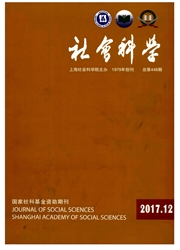

 中文摘要:
中文摘要:
以中国历史上的并税式改革、税收思想和税收制度安排为线索,解读其中折射出的国家治理困境和衍生的制度逻辑。中国古代税收制度在国家治理中主要表现为三种现象:“黄宗羲定律”下的王朝周期律;轻税思想、君主集权、征税权力之间的博弈困境;“明税”与“暗税”并存的财政制度安排。通过对这三种现象的梳理与概括,以“制衡与失衡的税收权力”、“中央与地方的税收博弈”、“名义与实质的税收体系”这三对基本关系来揭示隐藏着的中国税收历史周期性现象和治理逻辑,进而解读出现有税收制度在国家治理体系中面临着一脉相承的困境。依这一理论逻辑,应从税收法定、完善地方税体系与优化税制结构三方面入手,推动税收制度适应国家治理现代化。
 英文摘要:
英文摘要:
Based on tax merge reform, tax thoughts and tax system in history, we try to find the nature which reflects the national governance dilemma and derivative system logic. Ancient Chinese taxation system can be concluded as three phenomena: Huang Zongxi Law, game dilemma among the light tax thoughts, centralized monarchy and levy power, legal and potential tax institution. Combing and summarizing the three forms, we use three basic relations to reveal hidden tax history cyclical phenomenon and governance logic, namely restrained and unrestrained tax authority, central and local tax game, nominal and factual tax system. Then we make some suggestions about how to promote tax system to adapt to the modernization of national governance, such as legalizing tax, improving local tax system and optimizing tax structure.
 同期刊论文项目
同期刊论文项目
 同项目期刊论文
同项目期刊论文
 期刊信息
期刊信息
